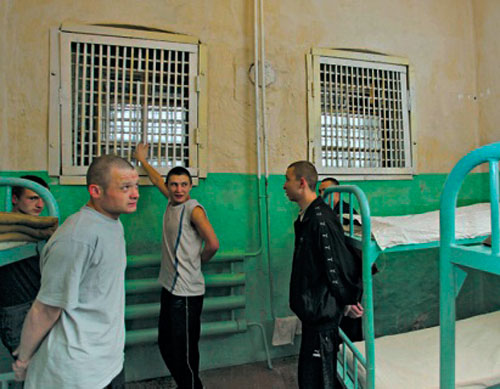Foreign Ministry: “Prisoners’ complaints are carefully considered”
Comments on the National Report to the Universal Periodic Review (second cycle) prepared by the Ministry of Foreign Affairs of the Republic of Belarus
The authors’ statement on the possibility for prisoners in Belarus to challenge the illegal actions of prison staff deserves a full quote, as the mentioned statistics characterize the effectiveness of this procedure. According to the government, “all applications and complaints about misconduct committed against citizens are carefully considered and investigated. In case of violations alleged perpetrators are brought to justice in accordance with the law. For example, in 2014 the Department of Corrections of the Ministry of Internal Affairs of the Republic of Belarus registered and reviewed 96 complaints of citizens against unlawful actions of the authorities and institutions of the correctional system, medical-labor dispensaries of the Interior Ministry. In 2011-2014, prosecution authorities examined 158 complaints about measures against convicts and persons in custody (67 in 2011, 35 in 2012, 37 in 2013, 19 in 2014). Complaints were not satisfied. In 2012-2014, courts examined 15 cases of complaints by persons sentenced to arrest, imprisonment, life imprisonment of persons held in custody against penalties and complaints by administrative arrestees against the use of disciplinary sanctions. Complaints were be groundless.”
In its Report on the results of monitoring places of detention in Belarus, the Human Rights Center "Viasna" emphasized the problem of appealing actions and decisions affecting the rights of prisoners. Typically, inmates appeal against actions of the administration to the Department of Corrections and its regional areas and to the Prosecutor’s Office. The number of such complaints (96 to the Department of Corrections; they were received from more than 30,000 prisoners; and 19 to the Prosecutor's Office) causes suspicion. Although, in fact, their number mentioned in the Foreign Ministry’s report, is not so important. What is important is the result: none of the complaints was found well-justified.
One can cite court statistics with great confidence. The procedure is such that a normal prisoner knows little about it, being unable to make use of it: the complaint is filed and considered by the rules of civil procedure, which provides for the observation of various kinds of requirements related to the form and involvement in the proceedings. The budget offers no legal aid to prisoners; filing a complaint requires a fee in the amount, which is apparently high for the prisoner. The possibility of exemption from the registration fee is provided only formally. And the results of going to court are, in fact, the same: complaint found groundless.
The Universal Periodic Review (UPR) is a mechanism of the UN Human Rights Council seeking to review the human rights situation in all countries of the world. Belarus passed the first cycle of the UPR in the UN Human Rights Council in 2010. Belarus accepted 74 out of the 94 received recommendations; in 2012 Belarus submitted to the Office of the UN High Commissioner for Human Rights an interim report on the implementation of the recommendations of the first cycle of the UPR. This report was analyzed in the framework of the monitoring of the situation of prisoners. In September 2014, Belarusian human rights activists sent to the Council their own materials for the UPR.


















